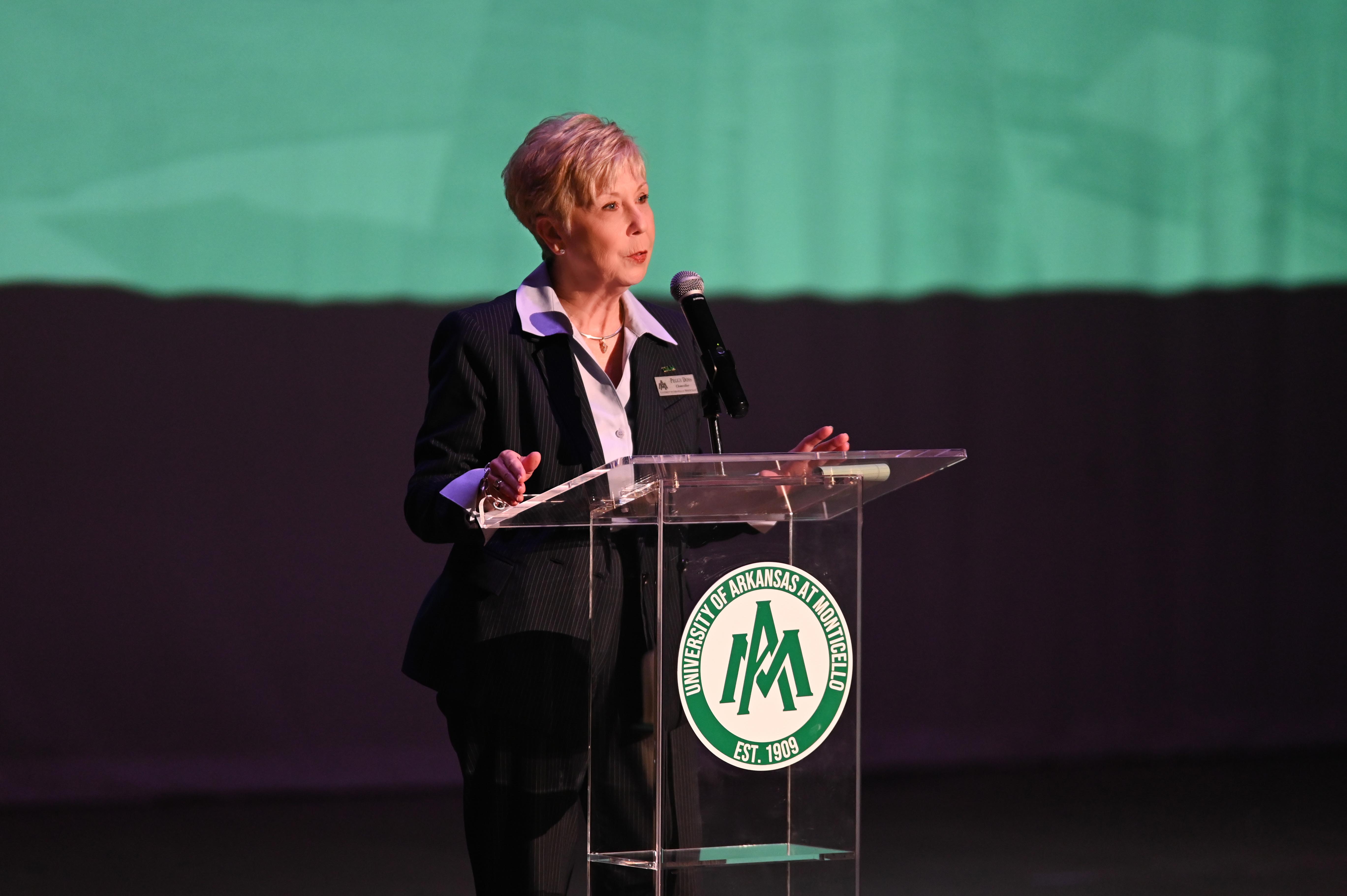UAM NEWS
Economic Impact Study Highlights UAM’s Effect on Region and State

On April 27, the University of Arkansas at Monticello held a public presentation in the UAM Fine Arts Center to share the results of a recently conducted UAM economic impact study.
Dr. Matthew Pelkki, professor of Forestry and George H. Clippert Chair of Forestry at UAM, presented the findings of the study, which he conducted with assistance from Dr. Nana Tian, assistant professor of Natural Resources Economics/Policy at UAM, and Dr. Marsha Clayton, dean of the School of Business at UAM. The analysis utilized database software available through the Arkansas Center for Forest Business.
The study measured the economic impact of UAM at regional and statewide levels. Findings included that in the 14-county region of Southeast Arkansas, UAM supported 1,296 jobs and $292,641,512 annually in economic activity, and at the statewide level, UAM supported 3,519 jobs and $925,014,362 annually in economic activity.
During his presentation, Dr. Pelkki stated, “UAM alumni and those who have attended UAM bring in nearly $550 million of annual added income statewide because they’ve earned a degree here or they’ve had education here, and that’s enabled them to be better earners from the time they graduate to the time they retire.”
Using data from the Bureau of Labor Statistics, the study measured additional income earned by people as a result of attending UAM as compared to peers who earned a high school degree and did not attend college. UAM students who attended UAM, but did not earn a degree, on average, earned $4,680 more per year than peers with only a high school degree. UAM graduates who received two-year degrees averaged $8,008 more earned per year; UAM graduates who received four-year degrees averaged $27,300 more earned per year; and UAM graduates who received graduate degrees averaged $39,780 more earned per year.
“If someone attends UAM, and they don’t get a degree, but we’ve given them a chance, we’ve let them see what some of the possibilities are for them, that’s still worth $4,000 a year in additional annual income,” Dr. Pelkki explained.
Dr. Peggy Doss, chancellor of UAM, addressed the crowd, stating, “All of you know the importance of the relationship between the University of Arkansas at Monticello and your communities and business and industries in our region. What we realized is that we talk about the economic impact of the university and our students, and all the things that happen because the university is present here, but in the past, we have not had really solid data to use to show that true impact. Now, we have taken advantage of the Arkansas Center for Forest Business and Dr. Pelkki’s expertise to do a true economic impact study.”
“Community and university have a symbiotic relationship. We depend upon each other, and this study so clearly points that out,” Dr. Doss said. “We all need to continue working together, as we have, to make sure that the future for this region is bright. UAM stands ready to do our part.”
A recording of the full presentation is available on the university’s YouTube channel, here.
For additional information regarding the study, contact Dr. Pelkki at 870-460-1949.